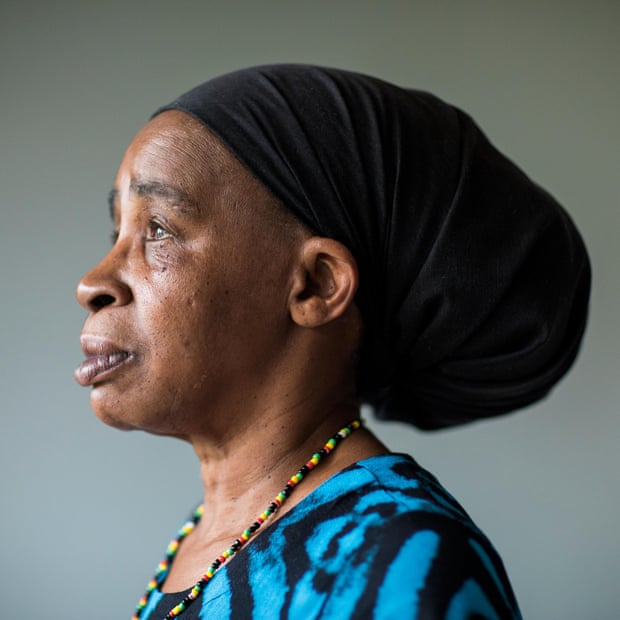Victims of the Windrush scandal have criticised the consultation phase of the government’s proposed compensation scheme, saying it is too long and complex.
Campaigners also warned not enough had been done to advertise the consultation and urged the government to quickly provide financial help to those facing destitution.
Winston Jones, 62, likened the 63-page consultation booklet to an unpleasant “psychedelic experience”. He said when he started to fill out the form he had to stop because he struggled with its layout, length, and the phrasing of the questions. “It’s very stressful. It puts you off writing the form,” he said.
Jones, who asked for his real name not to be published, had previously spoken to the Guardian of his ordeal caused by his undocumented status. Jones moved to the UK in 1972 aged 16, but was evicted while having surgery and denied a hostel place because he had no proof of his arrival.
He added: “I filled it and sent it back to the address that they gave me. It’s a good thing I wrote my address on the back because the form came back to me from the postman to say we don’t have this address.”
Jones attended a meeting on the Windrush consultation scheme last week to hand-deliver the form to the immigration minister, Caroline Nokes.
Euten Lindsay, 54, who lives in Plymouth, Devon, said he also struggled to fill in the form. “It wasn’t easy. It took me quite a while just to fill it in and I think I did the best I could. The wording that was used, they didn’t make it simple or easy for people,” he said, adding that he should have been given more help.
Lindsay arrived in the UK aged nine in 1973 with his older brother. He said he began to experience problems in 2014 when he struggled to provide proof of his status. He lost his business and quickly fell into debt as he was unable to pay his rent or bills.
He said he was left destitute: “I’ve had to beg. I’m not used to begging ... As a father, I wasn’t able to be there for my child.”
ProfileHow the Guardian broke the Windrush story
Show

In November last year, Paulette Wilson (left), who has lived in the UK for more than half a century, spoke to the Guardian's Amelia Gentleman about her treatment at the hands of the Home Office - and revealed that she had been held at Yarl’s Wood detention centre and threatened with deportation. It was the first of a series of stories that developed a picture of how many members of the Windrush generation were being mistreated by the government under the so-called ‘hostile environment’ policy. By February, with other examples mounting, the government had relented in Wilson’s case, but faced acute criticism from Caribbean diplomats who urged the Home Office to adopt a “more compassionate” approach.
In March the story of Albert Thompson - who had lived in Britain for 44 years but was told to produce a passport or face a bill of £54,000 for cancer treatment - forced attention back to the growing crisis. After the Guardian reported a string of additional cases matters came to a head when Theresa May refused to meet with Caribbean diplomats to discuss the issue, prompted fury among opposition MPs and a wider media backlash. After days of negative publicity, the then home secretary, Amber Rudd, and May were forced to change tack and issued apologies, promised reforms – and eventually gave the Windrush generation a fast-track to citizenship.
Callton Young, a Labour councillor in Croydon and the chair of the Croydon African Caribbean Family Organisation, said: “I found the online Windrush compensation consultation form to be a technical barrier to justice for victims of the hostile environment. It is too long and complicated and crashed before I could finish completing it.” He said that if he, a former civil servant, had struggled to complete it, what chance did others have?
Chloe Robinson, a caseworker at Praxis, a charity that helps vulnerable immigrants, said: “It hasn’t been properly advertised … I feel like there’s been a very low response to the consultation.”
She feared many of the responses were from organisations speaking in a professional capacity. “I think the complexity of it has put people off responding,” she said.
Campaigners and those affected by the Windrush scandal were also frustrated by how long it was taking to pay the compensation. The government has extended the closing date for the consultation to 16 November.
Winston Robinson, 61, a former ambulance driver, said he did not know much about the consultation itself, but was frustrated with the time it was taking to be paid any money. “The van turned up one day and destroyed my life. Yet I have to go and chase them for my compensation.”
Robinson arrived in the UK in October 1966 aged nine. Like many others of the Windrush generation, he was unable to provide proof of his status during the government’s immigration crackdown. He lost his job and accrued heavy debt.
“I’ve still got debtors ringing me,” he said, adding: “I see people talk about what can be done, but at the end of the day I’m wondering what is being done? That’s what I’m interested in.”
Satbir Singh, the chief executive of the Joint Council for the Welfare of Immigrants, said that while Martin Forde QC – who was appointed by the government to provide independent advice and guidance on the compensation scheme – was doing all he could to make the scheme accessible, he remained concerned by the absence of any immediate hardship fund. “Many have already been waiting for years and are at risk of destitution,” he said.
A Home Office spokesperson said: “The home secretary and the immigration minister have been very clear that they want to right the wrongs experienced by the Windrush generation, including through the compensation scheme.
“As well as online, by post or by phone, the consultation is seeking views of hundreds of people affected through eight Home Office focus groups and five roadshows with a further five events planned in the coming days across the UK.”
